PannonPharma Inc., the Stalwart Frontrunners of the Added-value Pharma Industry O�ers Generic Based BREAKTHROUGH Therapy Against SARS-Cov-2 in COVID-19 and Control over Pandemic
 Most Leading Companies to
Mr JP Pallos CEO PannonPharma Inc.
Most Leading Companies to
Mr JP Pallos CEO PannonPharma Inc.




Editor’s Note

A Paradigm Shift in the Global Healthcare

resources on complying with the physician’s prescribed drugs? With the rising costs of healthcare services globally, a greater percentage of customers’ out-of-pocket spending goes into buying drugs prescribed by their physicians. Surprisingly, in recent years, this spending has far exceeded the overall medical spending, which is concerning for the government, customers, and the healthcare sector.
The scenario could be attributed to the pharmacy industry, which spends millions of dollars in its drug-making process. From conducting multiple drug-making and clinical trials—to wasting a billion dollars on product failure—until they reach a health-satisfactory innovation.
They consider themselves rightful for pricing their drugs to the level they desire and repeat this process until it drains the customers’ health and financial resources overall. It is impactful for them in all existing forms.
For those who are poor, the idea of drug affordability has gotten far out of their hands. Even the ones who, despite being insured, are required to spend out of their pockets to
fulfil additional drug expenses. In both cases, customers end up denying the consumption of prescribed drugs due to their inability to afford them.

But it doesn’t have to be the case. Instead of completely denying it, they have an alternative of using generic drugs. Generic drugs are pharma medicines that are not only costeffective but perform the same role that a branded drug would do. They have the same dosage, kinetics, strengths, quality, and intended usage. Approved by the FDA, generic drugs are being promoted in the market at a faster pace today.
“If generic drugs can provide us the same therapy that a branded drug, then why not give it a try?” Hopeful about cost savings, customers are starting to give it a thought. Realizing the increasing preferences towards generic drugs, we at Insights Care, through our latest edition, “ 10 Most Leading Generic Pharma Companies to Watch in 2022, ” will be signifying the shift in the industry’s operations to reach where customers are headed.
Have an insightful read!
 -Saloni Agarwal
-Saloni Agarwal
PannonPharma Inc.
PannonPharma Inc., the Stalwart Frontrunners of the Added-value Pharma Industry Offers Generic Based BREAKTHROUGH Therapy Against SARS-Cov-2 in COVID-19 and Control over Pandemic

CONTENTS
08
Interview with Insights Care
Interview with Insights Care

Rus Biopharm

A One-Stop Solution for Asthma and COPD
STADA Arzneimittel AG

Legacy of Care with High-quality Pharmaceuticals


Few Things in Life are Certain –Greater Automation is One of Them!
By- Graeme Ladds
16
Articles ARTICLES
20
28
CXO
32 24
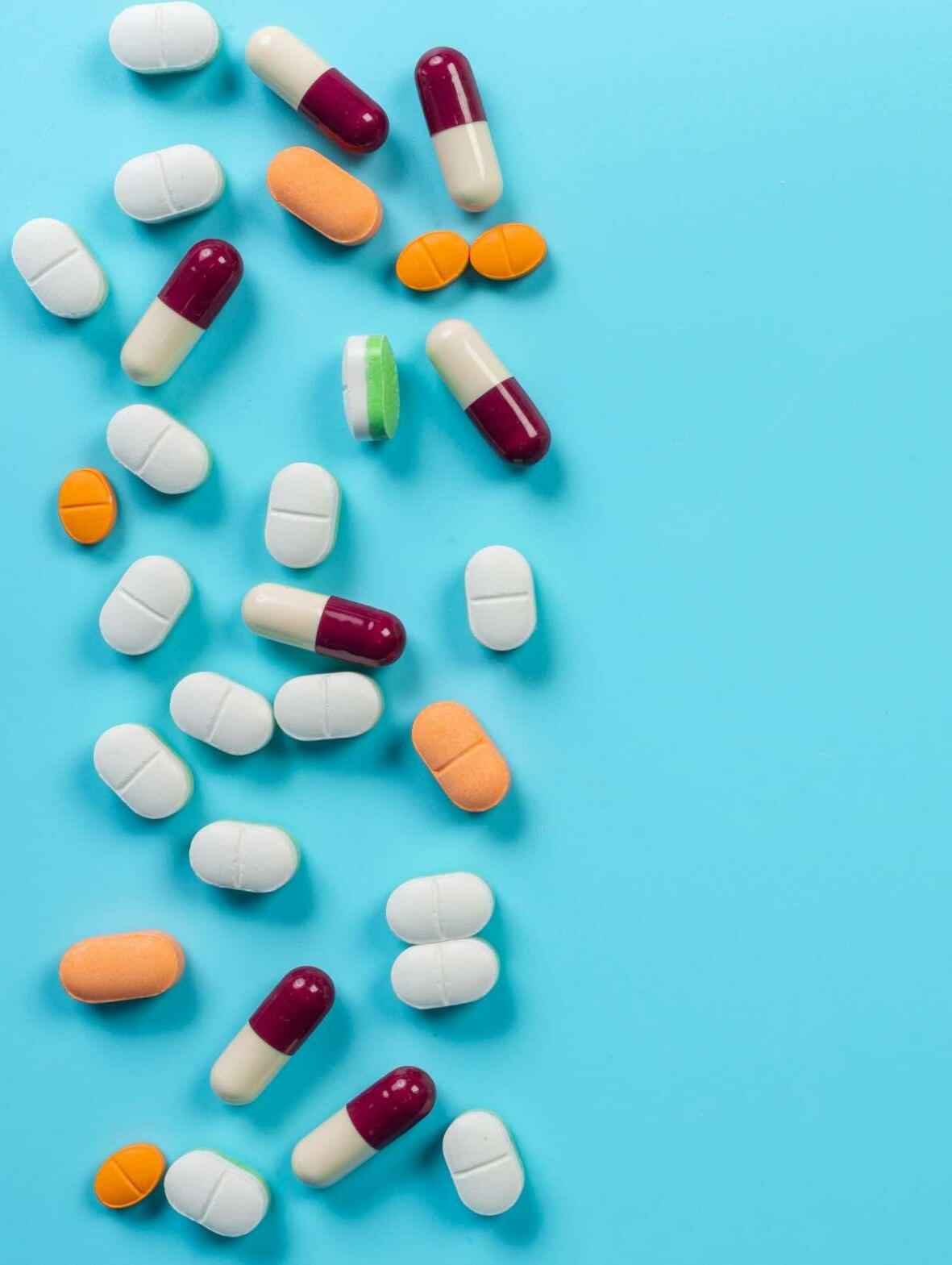





Co-designer Paul Belin Art & Picture Editor Mrunalinee Deshmukh Art & Design Head Editor-in-Chief Pooja Bansal Managing Editor Shrutika Khedekar Senior Editor Anish Miller Visualiser David King Research Analyst Eric Smith Sarah Wilson, John Smith, Alex Vincent Business Development Executives Amy Jones Business Development Manager Sales Executives Kelli, Bill, Anna SME-SMO Executives Gemson Digital Marketing Manager Alina Sege Technical Consultants David, Robert Technical Head Jacob Smile Marketing Manager John Smith Assistant Technical Head Amar Sawant Assistant Digital Marketing Manager Renuka Kulkarni Assisting Editors Saloni, Drishti Sonia Raizada Circulation Manager Tanaji Fartade Copyright © 2022 Insights Success Media and Technology Pvt. Ltd., All rights reserved. The content and images used in this magazine should not be reproduced or transmitted in any form or by any means, electronic, mechanical, photocopying, recording or otherwise, without prior permission from Insights success. Reprint rights remain solely with Insights Success Media and Technology Pvt. Ltd. Insights Care is powered by Insights Success Media and Technology Pvt. Ltd. September, 2022 Follow us on : www.facebook.com/InsightsCare/ https://twitter.com/Insightscare Insights Success Media Tech LLC 555 Metro Place North, Suite 100, Dublin, OH 43017, United States Phone - 302-319-9947 Email: info@insightscare.com For Subscription: www.insightscare.com Insights Success Media and Technology Pvt. Ltd. Office No. 22, Rainbow Plaza, Shivar Chowk, Pimple Saudagar, Pune, Maharashtra 411017 Phone - India: 7410033802, 74100058552 Email: info@insightscare.com For Subscription: www.insightscare.com sales@insightscare.com Contact Us:
Featuring Person Company
JAMP Pharma Corp. jamppharma.ca











MJ Biopharm Pvt. Ltd. mjgroup.co.in
Natco Pharma natcopharma.co.in
Sophie Jacques Director of Communica�ons
JAMP Pharma Corp. is commi�ed to suppor�ng healthcare professionals so that they may focus on what ma�ers most: the well-being of Canadians.
MJ Biopharm Pvt. Ltd. is a growing mul�-na�onal conglomerate with a presence in Pharmaceu�cals, Biotechnological, Flavours, Fragrances, Agro Chemicals & Speciality Chemicals Industries.
Natco Pharma manufactures niche and complex pharma products, making them accessible to all.
Orchid Chemicals & Pharmaceu�cals orchidpharma.com
PannonPharma Inc pannonpharma.hu
Pharmathen S.A. pharmathen.com
Pharmax Pharmaceu�cals Pharmax.ae
PharSafar pharsafer.com
Rhodes Pharmaceu�cals L.P rhodespharma.com
Rus Biopharm rusbiopharm.ru














Orchid Chemicals & Pharmaceu�cals is a ver�cal integrated company having a mul�-therapeu�c presence across segments like an�-infec�ves, an�-inflammatory, central nervous system (CNS), cardio vascular segment (CVS), nutraceu�cals and other oral and sterile products.
PannonPharma Inc has been manufacturing pharmaceu�cals and performing related pharmaceu�cal research and development, as well as pharmaceu�cal analy�cal, and quality development ac�vi�es.











Pharmathen S.A. aims to provide Life Cycle Management solu�ons for branded pharma, as well as develop and establish new technology pla�orms, and provide op�mized pharmaceu�cal products to pa�ents.

Pharmax Pharmaceu�cals is a business of manufacturing and commercializing high quality, safe, efficacious, and cost effec�ve pharmaceu�cal products that exceeds the pa�ents and customer expecta�ons.
PharSafar provides tailored solu�ons to act as a complete pharmacovigilance, cosmetovigilance and medical services department.
Rhodes Pharmaceu�cals L.P—with its R&D capabili�es, industry partnerships, broad customer base, and strong rela�onships with suppliers—offers reliable supply of high-quality products at compe��ve prices.
Rus Biopharm develops and implements innova�ve approaches in biopharmaceu�cs, focusing on pa�ents suffering from severe socially significant diseases.
Stada Arzneimi�el is a leading manufacturer of high-quality pharmaceu�cals. With a long-standing heritage rooted in pharmacies, we are perceived as a reliable and trustworthy partner for more than 125 years.

Brief
Amol Shah Managing Director
Srinivasu Topalli Senior General Manager
Mridul Dhanuka Director
Mr JP Pallos CEO
Dimitris Kadis CEO
Sushmita Tamang
Graeme Ladds CEO
Vincent Mancinelli President
Satya Karm Punia President
Stada Arzneimi�el stada.com
Peter Goldschmidt CEO
 Mr JP Pallos CEO PannonPharma Inc
Mr JP Pallos CEO PannonPharma Inc
Cover Story
PannonPharma Inc.
PannonPharma Inc., the Stalwart Frontrunners of the Added-value Pharma Industry Offers Generic Based BREAKTHROUGH Therapy Against SARS-Cov-2 in COVID-19 and Control over Pandemic
PannonPharma's mission is to develop new medicines, new medical technologies, by inventing, repurposing, repositioning generics to generic+ pharmaceutical products.

Back in the 1980s, a group of young research fellows, medical doctors, bio-analysts formed a research group. They were investigating the metabolic changes of astronauts during their space flight, and in parallel, started to study cholesterol metabolism of patients with hepatobiliary disorders. They pioneered instrumental chromatography, the HPLC, the revolutionary separation science on this field. This research project was supported by George Soros in the form of world class scientific instrumentation.
This research work lead to discover the role of bile acids in cholesterol metabolism and to understand its role in "high cholesterol level associated diseases." Despite the hard working, promising results, the golden age of "statins" as pharmaceuticals, made it impossible to commercialize the invention. But the knowledge they gained is not lost. High cholesterol level is the major risk factor of sever Covid-19, and mostly responsible for the coronavirus pandemic as well.
Their early results just need to be reevaluated when the first papers published about Cholesterol role in COVID-19, which is a major key-risk factor and has a definitive role in the pathogenesis and decourse of SARS-CoV-2 infection. Cholesterol is the question of death or life, and offers new treatment modalities for COVID-19 patients.
This research group and their work laid the foundation for PannonPharma Inc . and among them was the company's current CEO – J. P. Pallos .
PannonPharma Pharmaceutical Inc. is more an R&D-driven generic plus pharma company than a large-scale pharmaceutical manufacturer. PannonPharma's R&D team continuously monitors the new treatment opportunities in medicine and medical technologies related to challenges by new infections and diseases. The innovations are based mainly on repurposing its portfolio with well-established use products.
PannonPharma is the only company so far, that offers ram to the jab, a new solution to stop or alleviate the coronavirus pandemic, where the barehanded jab is the mandatory vaccination, which can strengthen by a ram, which is the gastrointestinal (GI) SARS-Cov-2 virus disinfection by the newly discovered virus structural disrupter.
The company's new paradigm is a non-systemic treatment to eradicate SARS-CoV-2 in the intestines, i.e. viral
disinfection of the GI tract, necessary to stop virus shedding by symptomless virus carriers, as well. This new treatment modality (patent application submitted) might be a lifesaving treatment of COVID-19 patients and ought to be the subject of emergency market authorization by regulatory bodies.
Non-systemic treatment is a mild medical intervention, as drug does not enter into the circulatory system, have no effect on vital organs, therefore side effects are rather lower in frequency.
The active pharmaceutical ingredient (API) of this patented antiviral therapy is the well known antimycotic drug Nystatin, with forgotten, repurposed antiviral activity. By inhibiting the nasty fungy species, mostly Candida albicans , at the same time, Nystatin is capable to denaturalize the coronaviruses and their possible mutants as well, which are accounted as one of the major cytokine storm inducers too. It can be used immediately, by emergency use market authorizations. This is PannonPharma's very last project, still open, for clinical trials, one might be necessary afterwards. Investors are welcome!
Mission:
PannonPharma's mission is to develop new medicines, new medical technologies, by inventing, repurposing, repositioning generics to generic plus pharmaceutical products, having active substances with well-documented safety and beneficial effect in therapies.
Most Leading Generic
Companies to Watch in 2022
PannonPharma's R&D team continuously monitors the new treatment opportunities in medicine and medical technologies related to challenges by new infections and diseases.
10
Pharma
Range of PannonPharma's Offerings
The full scope of PannonPharma's activities covers manufacturing of generics and original medicines (EU GMP), import and distribution medicinal products from third countries, drug regulatory affairs, sales, scientific and technical research and development, medicine analytics, engineering, consulting. Its portfolio includes more than seventy products: tablets, capsules, granules, solutions, sterile solutions, ointments, injectable and powder mixtures.
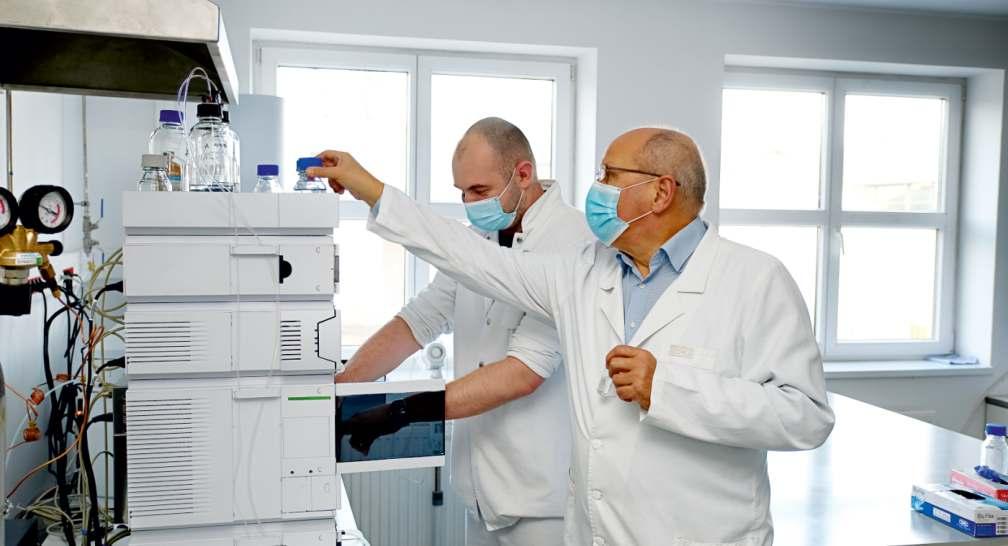
PannonPharma Group of Companies is also a think-tank that offers simple solutions for complex problems.
They develop products to meet the unmet needs in the therapy of: Ÿ
Multi-resistant SA Staphylococcus aureus topical treatment by primycin antibiotics, Ÿ To stop coronavirus: the API for COVID-19, SARSCoV-2 virus eradication in: Ø GI tract – disinfection agents and their combinations, Ø Nose – Nasal drops, spray by interferon, Ø Eye – eye drop, Ø Ear – ear drops,
Ø herbal substances for inhalation solution to disinfect the respiratory system and lungs Ÿ Free radical scavengers to treat oxidative stress diseases in virus infections, and vaccinations Ÿ
Complex health food supplement to tune the immune system up against viruses and vaccines Ÿ Antiviral Cancer treatment by herbal substances Ÿ
Non-GMO superfood, virus-resistant and protein-rich potato varieties
There are new technologies rising on the horizon. Reconstruction surgeries need precisely manufactured implants. PannonPharma's partnership company developed the CT segmentation imaging technology, able to extract precise anatomic profiles from noisy CT recordings, in a very short period of time. They plan to add value by manufacturing tailor-made bone and 3D tissue cultured implants.
What makes PannonPharma Stand Out
PannonPharma claims to be the only company that may contribute to stopping, alleviating the SARS-CoV-2 pandemic, by non-systemic viral disinfection of the GI tract, repurposing cholesterol-binding Nystatin drug. Its antiviral activity is a very robust one, destroys the envelop structure of all coronaviruses and their mutants, too.
The ongoing pandemic shall be controlled applying two principles of social defense: the first is vaccination of masses, as a systemic treatment, as much as possible. The second one must be a non-systemic treatment of GI disinfection, eradication of the virus from the intestines.
This non-systemic treatment is also mandatory because the infection in the GI tract may cause damage to the intestinal barriers. This viral attack on vital organs via circulation (viremia) may cause clinically severe or fatal conditions in patients. The persistence of the virus in the GI tract may lead to post-COVID symptoms and further re-infections.
Worldwide, there are generic 'me too' companies making one-to-one copies of original drugs, and there are generic plus innovation driven pharmaceutical companies, like PannonPharma.
The company does repurposing for extension of therapeutical indication of drugs, with well-known API or added-value reformulation of well-known active pharmaceuticals. These new treatment modalities might be of high value.
The Cultivated Leader
From East to West, Mr J. P. Pallos was pioneering the beautiful epoch where technology meets science.
He had the privilege to start his pharmaceutical industry career at the famous innovation-driven company, HewlettPackard Inc's Analytical Instruments Division, now called Agilent, in 1987. Arriving from the East-Block, he was the funny guy in the focus or interest of the whole company, the first direct HP head-count employee from the communist world. He got the task, to his carrier, from the President of HP during their face-to-face short meeting in Vienna, Austria.
In 1987, John A. Young advised Mr Pallos to conquer Hungary for HP Analytics Instruments. He did that and supplied the best instrumentation and technology from HP Analytic Division to the pharma companies.
By far, separation sciences have played a major role in medical, chemical, material disciplines over the past 50 years. No technology, no scientific progress is accountable without chromatography, electrophoresis, technics, and instrumentation. Progress was made by US-based companies and they are leading the way.
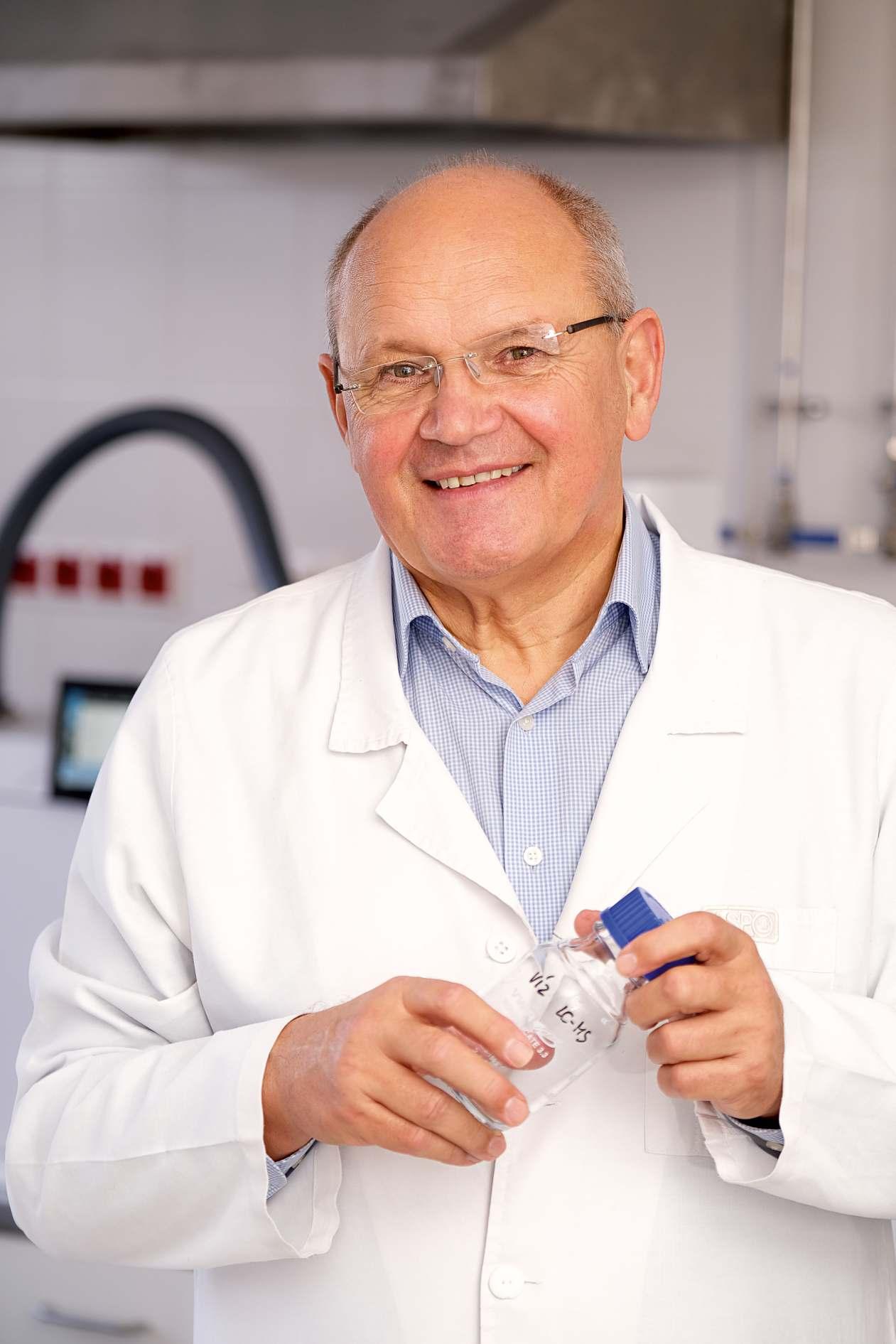
Awards and Accolades
Mr J. P. Pallos was awarded the 'TOP 100 Hewlett-Packard Employee Award'.
Mr J. P. Pallos is a member of the board of Europharm SMC Association of Pharmaceutical Manufacturers of the European Union.
The Pandemic Dictate
A SWOT analysis about the introduction of the pandemic on the global pharma industry specifically, might better explain the effect COVID-19 has had:
Strength – the pharma industry is one of the major role players to have control of the pandemic.
Weakness – means all modalities of treatment shall be carefully investigated. Vaccination, by itself, is not satisfactory to stop the pandemic.
Opportunities – complex problems may require simple solutions for a new paradigm.
Threats – monopolies in the supply of life-saving drugs resulting in weakness in any state defense.
From the point of view of the industry, COVID-19 acts as a kind of catalyst: it accelerates development and digitization processes, facilitates the cooperation of actors, etc. On the other hand, it also causes unforeseen difficulties, such as securing the supply of APIs. Hence, PannonPharma had to expand its manufacturing capacity to meet the needs.
PannonPharma is the only company so far that offers a new solution to stop or alleviate the coronavirus pandemic, where vaccination is just the first.

The Future of Pharma
When asked about his views on the future of the Pharma Industry, Mr J. P. Pallos answered, "The Pharma Industry is depending highly on health (or 'wholeness' as it is defined in the Hungarian language for the word ‘health') policy. Nowadays, the main interest is generated from diseases management. Soon, the policy shall be that of repurposing pharma industries to health, or more appropriately, to 'Wholeness' management. This is the only option for a brilliant future."

Word to the Wise
For the budding entrepreneurs and professionals aspiring to venture into the pharmaceutical industry, J. P. Pallos has these words of wisdom to share – "One needs to be a good health strategist, not just a good disease manager only. Strategy means to vision, see, plan, do, act for 'wholeness', as it is defined in the Hungarian language for the word 'health'.”
"As far as I can see, this industry is fully regulated, transparent, and predictable. Any reasonable investment will profit in time when the demand is realistic, and supply is structured. And, most importantly, patients are always the first priority," he added.
A Fortuitous Future Awaits…
Being an R&D company, PannonPharma is looking for R&D partnerships and investors for market development. Its vision is growth by magnitudes.
"There are beautiful markets with immense demands, and we have products to supply the needs. The regulatory to these markets is a very specific one, and we shall run clinical trials, preferably in the US. This is the only growth rate-limiting factor. We intend to out-license some of our products through investment bankers and investors," concluded the astute CEO of PannonPharma – Mr J. P. Pallos.
PannonPharma Group of Companies is also a think-tank that offers simple solutions for complex problems.

Stay in touch. Subscribe to Insightscare Get Insightssuccess Magazine in print, & digital on www.insightscare.com Check should be drawn in favor of : INSIGHTS SUCCESS MEDIA TECH LLC
www.insightscare.com September | 2022 16

www.insightscare.com September| 2022 17
www.insightscare.com September | 2022 18

www.insightscare.com September| 2022 19


www.insightscare.com September | 2022 20
Redefining Healthcare Costs
The Role of Sustainable Generic Drugs in the MEDICAL SECTOR
Sustainable generic drugs are emerging as a game-changer in the


medical sector. With rapidly rising healthcare costs, generic drugs are becoming increasingly important as a cost-effective and sustainable alternative to expensive branded medicines. Generic drugs can offer the same therapeutic effects at a fraction of the cost, making them a viable and affordable option for many patients.
Their effectiveness and affordability make them a practical solution to the increasing burden of medical costs. Moreover, they are widely available and often manufactured in large quantities, allowing them to be widely accessible. This makes them a reliable and cost-effective option for many people. As the medical sector continues to evolve, sustainable generic drugs are gaining greater recognition as an invaluable solution to rising healthcare costs.
Overview of the Medical Sector
The medical sector is growing at a rapid rate, driven by increasing healthcare costs and a growing population. A growing and aging population represent a large portion of this demand. In addition, many countries are experiencing economic growth, which has led to a higher demand for medical services and products. The medical sector is expected to grow by more than 5% annually, which is more than double the average growth rate of the global economy. This sector generates over $10 trillion in revenue and employs millions of people. As the medical sector continues to grow and evolve, sustainable generic drugs are emerging as a game-changer in this industry. With rising healthcare costs, generic drugs have become increasingly important as a costeffective and sustainable alternative to expensive branded medicines.
www.insightscare.com September| 2022 21
Advantages of Sustainable Generic Drugs
Generic drugs are cost-effective and sustainable alternatives to expensive branded medicines. They can offer the same therapeutic effects at a fraction of the cost, making them a viable and affordable option for many patients. Their effectiveness and affordability make them a practical solution to the increasing burden of medical costs. Moreover, they are widely available and often manufactured in large quantities, allowing them to be widely accessible. This makes them a reliable and costeffective option for many people. There are several reasons why generic drugs are more sustainable than branded medicines. Firstly, their research and development costs are lower since they do not require any clinical studies. Due to this, they are often produced in large quantities and are widely accessible. Furthermore, generics are made from the same active ingredients as branded medicines, which ensures therapeutic effectiveness.
Challenges with Sustainable Generic Drugs
Generic drugs are cost-effective alternatives to expensive branded medicines. However, they do experience challenges that can jeopardize their sustainability. For example, they are often manufactured in small quantities. This means they are not always widely accessible, and the amount of supply is often not enough to meet the growing demand. As a result, there may be a delay in shipping or availability of the product.
Due to these challenges, the supply of generic drugs may not always be consistent. This can lead to interruptions in treatment, which can be problematic for patients who need a regular supply of these drugs. Another challenge with generic drugs is the quality of the product. While these drugs are therapeutically equivalent to branded medicines, they are not subject to the same rigorous testing as their branded counterparts. This means that generic drugs may not meet the same quality and safety standards as branded medicines, which can be problematic for patients who need reliable treatment.
Impact of Sustainable Generic Drugs on the Medical Sector
Sustainable generic drugs are emerging as a game-changer in the medical sector. With rising healthcare costs, generic drugs are becoming increasingly important as a costeffective and sustainable alternative to expensive branded medicines. These drugs can offer the same therapeutic
effects at a fraction of the cost, making them a viable and affordable option for many patients.
Their effectiveness and affordability make them a practical solution to the increasing burden of medical costs. Moreover, they are widely available and often manufactured in large quantities, allowing them to be widely accessible. This makes them a reliable and costeffective option for many people. As the medical sector continues to grow, sustainable generic drugs are gaining greater recognition as an invaluable solution to rising healthcare costs.
Examples of Sustainable Generic Drugs
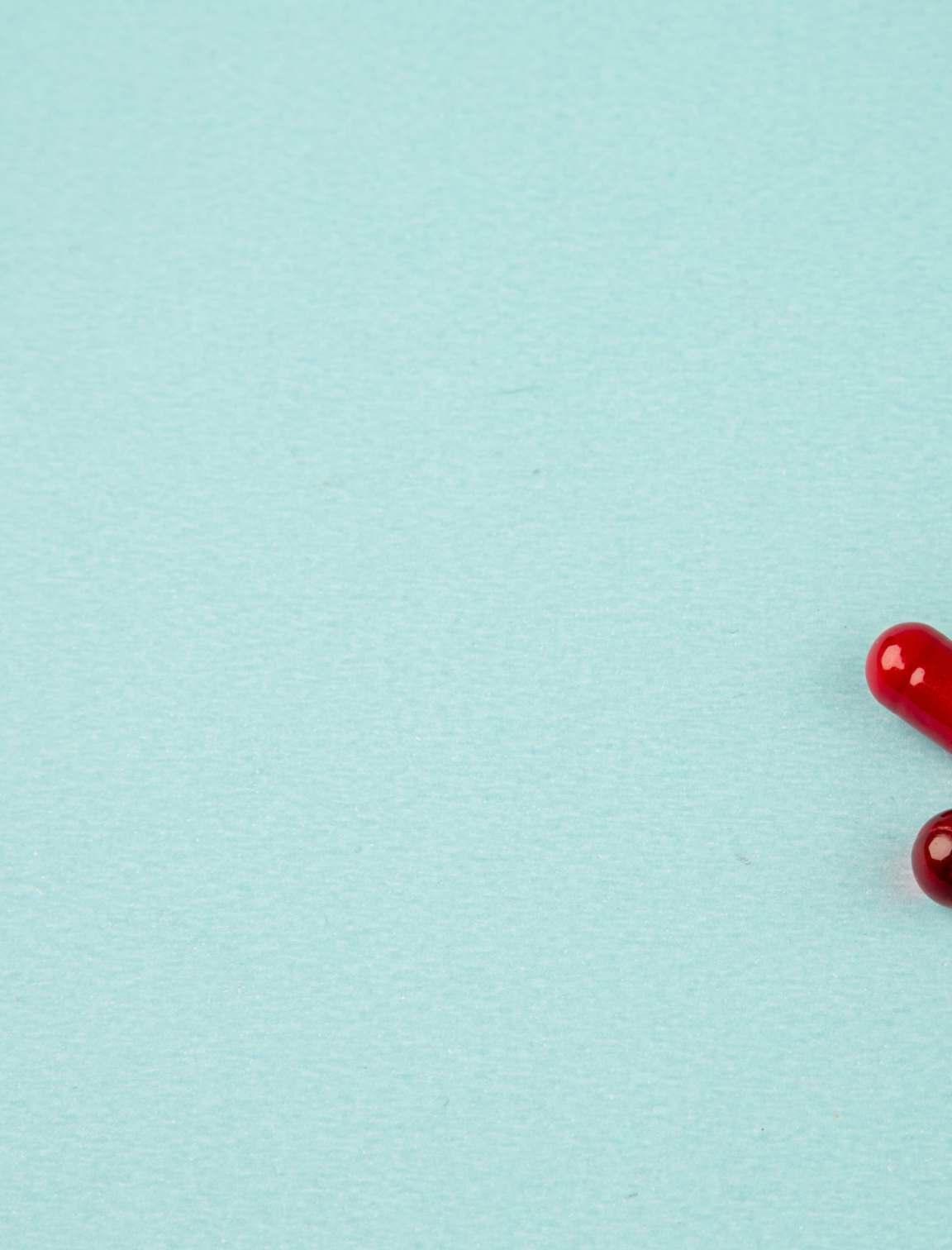
Generic drugs are cost-effective and sustainable alternatives to expensive branded medicines. They can offer the same therapeutic effects at a fraction of the cost, making them a viable and affordable option for many patients. Their effectiveness and affordability make them a practical solution to the increasing burden of medical costs.
Moreover, they are widely available and often manufactured in large quantities, allowing them to be widely accessible. This makes them a reliable and costeffective option for many people. As the medical sector continues to evolve, sustainable generic drugs are gaining greater recognition as an invaluable solution to rising healthcare costs.
Conclusion
Sustainable generic drugs are emerging as a game-changer in the medical sector. With rising healthcare costs, these drugs are becoming increasingly important as a costeffective and sustainable alternative to expensive branded medicines. These drugs can offer the same therapeutic effects at a fraction of the cost, making them a viable and affordable option for many patients.
Their effectiveness and affordability make them a practical solution to the increasing burden of medical costs. Moreover, they are widely available and often manufactured in large quantities, allowing them to be widely accessible. This makes them a reliable and costeffective option for many people. As the medical sector continues to grow, sustainable generic drugs are gaining greater recognition as an invaluable solution to the rising healthcare costs.
-Anish Miller
www.insightscare.com September | 2022 22















Few Life Certain is
Current Industry Situation
Throughout the years, pharmaceutical companies, for their developmental and marketed products, have continuously worked towards ensuring their products comply with the varied, numerous, and extensive legal safety/medical obligations – established and put in place by various national and international governing authorities and agencies – to ensure the appropriate level of vigilance is upheld in accordance with the safety requirements of each region.
Since the 1960s, the number of adverse reaction reports received by pharmaceutical companies, Market Authorisation Holders (MAHs), and regulatory authorities has risen year after year – a trend which continues to rise to this day, with the emergence and exponential growth of markets such as the cosmetics and medical device industries and the additional legislative changes for all of these areas bring to the wider pharmaceutical industry, giving reason to believe this rise will show no sign of slowing any time soon.
By- Graeme Ladds
In Europe alone, since the introduction of numerous pieces of revised and additional legislation in 2021, as a cumulative result of macro factors such as Brexit and the Covid-19 pandemic, adverse reaction reports have increased significantly – with the number of reports being submitted per year now at an all-time high.
As a result, this has placed an increased demand within the drug safety Departments of Companies for adverse event case processing and analysis duties and has inevitably led to the subsequent, ever-increasing demand being placed on employee output and labor; the need for new and additional staff; the associated cost of hiring and properly training said staff initially and long term, and the added pressures placed on ensuring processing timelines are met in accordance with regulatory requirements.
Moreover, this concern is one already shared by major industry stakeholders, with notable bodies such as the World Health Organisation (WHO) and European Medicines Agency (EMA) highlighting the implementation
www.insightscare.com September | 2022 24
About the Author
Graeme Ladds, CEO

With a first degree in Biochemistry and Pharmacology, and a Ph.D. focusing on drug metabolism and Pharmacokine�cs, Graeme has worked in the areas of Drug Safety and Medical services for over 30 years.
Graeme has been working as Head of Global Pharmacovigilance for a mul�-na�onal innovator Company and EU QP PV for several of the top ten Pharma Companies, large generic and smaller innova�ve Pharma, and is also the CEO of PharSafer® – a posi�on held for the last 19 years.
Furthermore, Graeme is also a member of the DIA; TOPRA; RQA, PIPA and MAPS and has helped small start-up Companies (Biotech; Advance Therapy; Medical Devices; Biologics; Generics; Herbal; OTC) in their planning and growth, and has been involved in Company and product acquisi�ons, due diligence ac�vi�es for product in-licensing and marke�ng, and development strategies with partner and distributor Companies.
Addi�onally, Graeme has been involved in many drug-development programs, taking products from the bench to market in a wide range of therapeu�c areas, and also has an addi�onal role as Research & Development Director for products to be developed for global launches.
www.insightscare.com September| 2022 25
of automation as a key factor in addressing issues with increasing safety reporting demands and combating the increasingly inaccurate and poor quality of case reports respectively.
The Importance of Finding a Solution
In recent years, most notably as a result of the Covid-19 pandemic, the subject of patient safety has excelled to new heights, with many areas of regulation have been and still being extensively reviewed and updated, and greater levels of public interest and involvement leading to large proportions of both patients and consumers becoming more aware of the requirements placed on industry organizations and MAHs. This is paired with industry companies and MAHs being required to adapt, update and outright change their company processes to align with any amendments made to regulation and case volume increases, usually to scales and within timespans previously otherwise unseen during this period.
Furthermore, when looking beyond the realm of safety data capture, reporting, and obtaining follow-up information and towards the wider pharmacovigilance activities, due to the activity of case processing is instrumental to ensuring a company can best address potential new safety information relating to their product, issues with inaccurate and poor quality of data processing have a direct, negative impact on the reliability of safety data analysis duties such as signal detection, periodic report writing, and benefit-risk determinations.
Consequently, the ever-rising demand being placed on safety reporting activities – in line with the aforementioned factors – has ultimately resulted in an unsustainable strain being placed upon the wider industry, with the unavoidable outcome of serious regulatory findings originating from inaccurate data, incomplete data, and reduced quality of data reported together with failing compliance becoming more of an eventuality than a possibility.
The Solution
For these reasons, the need for greater levels of automation within the pharmaceutical industry and, more specifically, drug safety has never been greater.
In order for governing and guiding authorities such as the WHO, FDA, PDMA, and EMA to ensure their goals of greater levels of ensuring safe and effective products and patient well-being on a global scale are achieved, the wider industry will require companies and MAHs to innovate and streamline processes supported by seeking an automated leap into the future of data entry and safety reporting and, in doing so, industry stakeholders will not only see their issues resulting from the ever-rising demands placed upon the workforce addressed, but improved to levels not previously seen before.
Through a greater implementation of automation, companies will now expect to see the human element of data entry repositioned towards analysis duties – freeing up professionals and enabling them to better utilize their skill sets and apply their knowledge towards finding solutions to potential safety issues – with manual case data entry set to become something overseen and driven by automated processes.
The greater implementation of automation will allow safety professionals to better concentrate on their analysis duties, providing greater levels of job fulfillment by removing the growing pressures felt from increased manual case processing; removing any repetitious procedures associated with data entry; eliminating human errors that result directly from issues with reporting quantities and timescales, whilst also maximizing the efficiency and affordability of case processing through superior global coverage; unprecedented reporting capabilities for both quantity and timescales; enhanced disaster recovery and business continuity processes, and reduced costings typically associated with staffing recruitment and initial and on-going training.
Furthermore, by addressing issues associated with case processing and enhancing vigilance over the first phase of safety reporting processes, improving the efficiency, consistency, and accuracy of safety data capture and collection will undoubtedly result in a positive, knock-on effect on the quality and speed of analysis activities and promote greater levels of global patient safety for years to come.
www.insightscare.com September | 2022 26


Pharmaceutical companies the world over patent the drugs that are derived from their own research. This allows them to have a monopoly in the sales of a product for many years and these companies do not have to worry about competitors when setting prices. Hence, they can charge as high a price for products as they want.
But once an initial supplier’s patent, which generally lasts up to 25 years, expires, other manufacturers of medicines can also produce these long-standing pharmaceutical products and sell them at significantly lower prices. These medicines are called ‘Generics’.


Generics are pharmaceutical drugs that contain the same active pharmaceutical ingredient as the first supplier’s proprietary product. Generics are significantly less expensive, despite their great quality.
A leading manufacturer of high-quality pharmaceuticals, with a long-standing heritage rooted in pharmacies, is the Germany-based company that has carved itself a legacy of care with high-quality pharmaceuticals – STADA Arzneimittel AG



STADA is highly regarded in the pharmaceutical sector as a reliable and trustworthy partner for over 125 years. With its products, STADA helps protect people and regain a dignified and able life. With its proven Generics, the company ensures that everyday health remains affordable.
And for its employees, STADA facilitates an attractive working environment in which they can develop personally.
STADA focuses on a three-pillar strategy consisting of generics, speciality pharma, and non-prescription consumer healthcare products. Worldwide, STADA Arzneimittel AG sells its products in approximately 120 countries. Consumer Healthcare brands such as Zoflora®, Grippostad®, Snup®, Aqualor®, Vitaprost® and Nizoral® are among the top sellers in their respective product categories. In the financial year 2020, STADA achieved group sales of EUR 3,010.3 million and adjusted earnings before interest, taxes, depreciation, and amortization (EBITDA) of EUR 713.3 million. As of 31 December 2020, STADA employed 12,301 people worldwide.
“At STADA, we follow our purpose of ‘Caring for people’s health as a trusted partner’,” remarked the Chairman of the Executive Board and the trailblazing CEO of STADA

Quality and responsibility towards all those who use its products and services is a fundamental component of STADA's corporate strategy.
www.insightscare.com September | 2022 28
Legacy of Care with High-quality Pharmaceuticals
st



Since September 1, 2018, Peter Goldschmidt is the CEO of STADA Arzneimittel AG. He strongly pursues the STADA vision, to be the partner of choice in generics, speciality medicines and consumer health in Europe and selected emerging markets, while continuously outgrowing the industry in terms of growth and profitability.
Peter Goldschmidt has 30 years' experience and success in the pharmaceutical industry. He worked in OTC, Generics and the innovative Pharma Business in Asia, Europe and the US in several different leadership functions.
Over the past three years at STADA, Peter Goldschmidt has led the group on a cultural journey, implementing a growth mindset culture based around the common purpose of "Caring for People's Health as a Trusted Partner". By ensuring that all of STADA's almost 13,000 employees worldwide truly live the four STADA values of Agility, Entrepreneurship, Integrity and One STADA, he has led the group in consistently delivering above-market sales and profit growth. As a top-five supplier of both generic and consumer healthcare products in Europe, STADA helps millions of people to lead healthy, dignified and fulfilled lives.

Care
Peter Goldschmidt
Interview with Insights
Our strategic priorities and values are the basis of our entire commitment to sustainable development in order to lead sustainable business and growth while achieving a positive impact on people and their health, the economy and the environment. And we bring these to life every day. For us, caring for people's health is more than providing support for prevention and treatment through a complete range of STADA's quality, reliable and affordable pharmaceutical products. It also involves raising awareness of personal health care and healthy lifestyles, while supporting public health care systems. Further, it is our civic duty to act as responsible citizens - we as individuals, we as a team and a society. This is exactly what makes us a partner of trust and choice when it comes to people's health.
roup – Peter Goldschmidt . “In pursuit of this purpose, G we are committed to further accelerating the successful trajectory of our company,” he added.

Caring for People’s Health
As all success stories do, STADA Arzneimittel's company history started with a great idea. In 1895, a group of pharmacists had a common objective: The standardized production of medicinal products to ensure an effective and reasonable provision of healthcare for the many . This was the beginning of STADA” impressive development.
With its products, STADA helps protect people and regain a dignified and able life.
Today, the company is a leading manufacturer of highquality pharmaceuticals. With a long-standing heritage rooted in pharmacies, the STADA Group is a reliable and trustworthy partner for more than 125 years.
Purpose: Caring for people’s health as a trusted partner

Vision: To be the partner of choice in generics and consumer health, while continuously outgrowing the industry in terms of growth and profitability.
Core Values:
Integrity – “ Each and every one of us acts ethically in line with the company's internal and external standards. Our actions are led by speaking up and respect. ”
Entrepreneurship – “Each and every one of us drives new ideas and actions, creating future growth and value. ”
Agility – “Each and every one of us leads change with flexibility and decisiveness as part of our ongoing journey of personal development. ”
One STADA – “Each and every one of us acts in the best interests of the company as a whole rather than our business unit or function in order to build one successful STADA. ”
Quality at STADA
Quality and responsibility towards all those who use its products and services is a fundamental component of STADA's corporate strategy. It thereby takes account of the great significance of quality in product safety in the health care market. Overall, the company aligns the quality policy throughout the Group to meet criteria that at least fulfil the strict legal requirements for pharmaceutical and health care products.
“Assessing the risks of newly arising, previously unknown side effects of active ingredients also play an important role in the quality of pharmaceutical products,” explains the astute CEO, Peter Goldschmidt. “This risk remains low for most of our products as only long-standing and researched active pharmaceutical ingredients are generally used. Of course, we have nevertheless implemented within our operations all the standard graduated plan proceedings for recording or detecting such pharmaceutical product risks throughout the Group,” he elaborated.
www.insightscare.com September | 2022 30


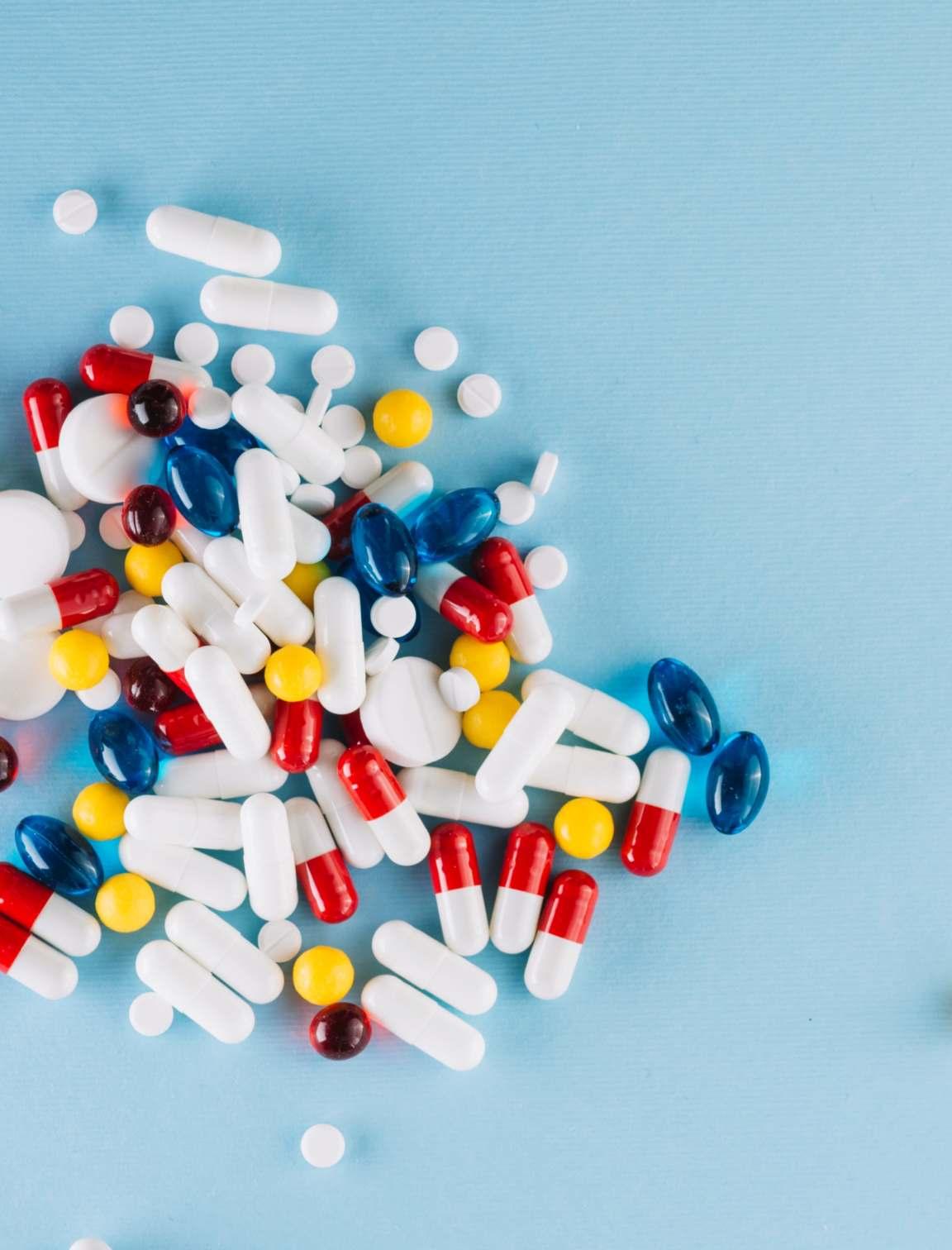
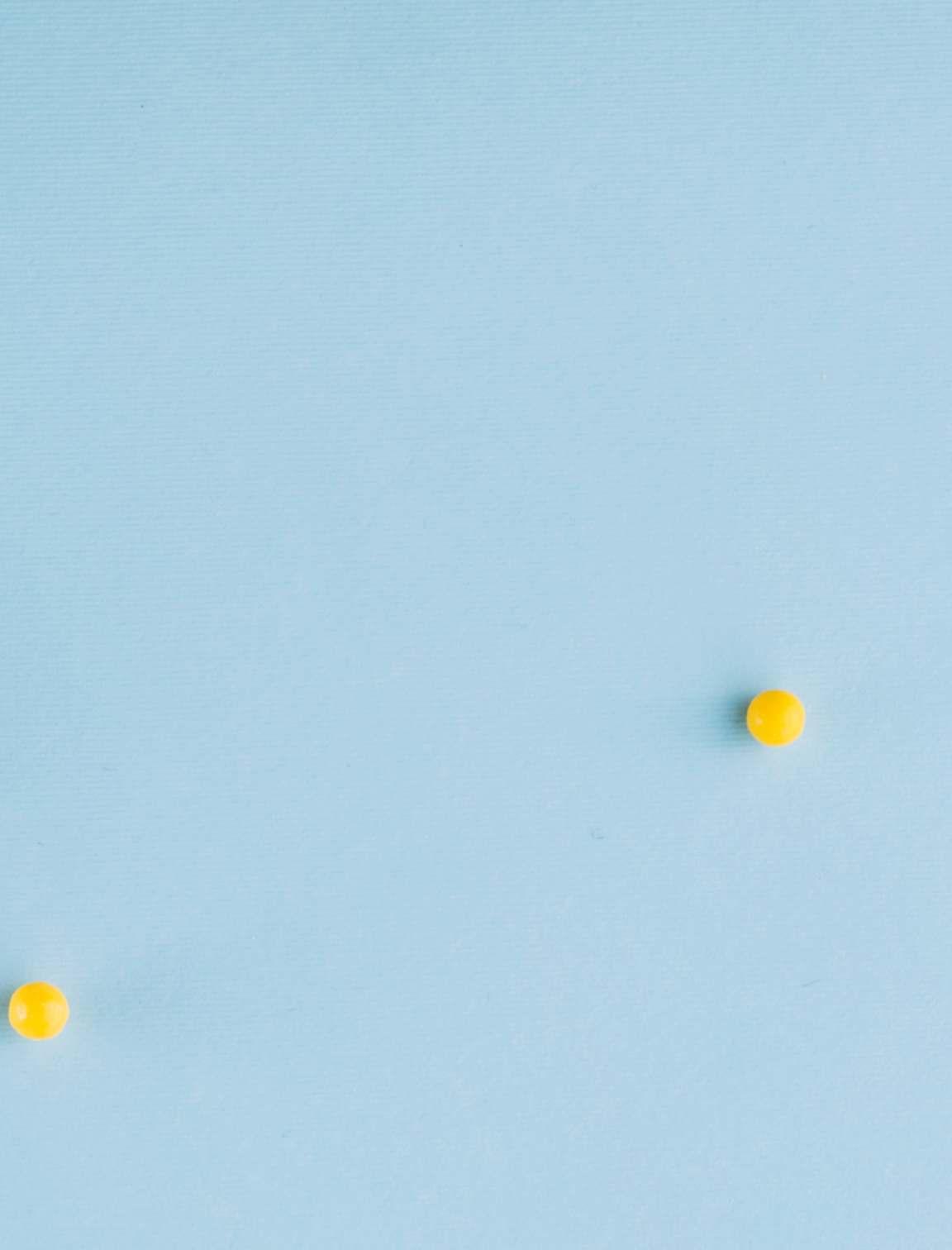
www.insightscare.com September | 2022 32
Top Technological Trends Revamping the Pharmaceutical Niche
Simple sayings often have deep engraved meanings and one of the old
saying is, ‘Health is wealth’ .
Understanding that individual could progress best in the good health conditions, has taken the health sector to new heights of invention. Stormed with new healthcare inventions with time, one of the most important parts of it has been taken by technology.
Growing technological involvement in Medicare has led to a reduction of lots of risks while coming up with better facilities and cures unimaginable a few decades ago. With the touch of tech Pharmaceutical industries are at immense benefits.

With ever-changing trends in the industry let us see the amazing developments in pharmaceutical field topping the list.

The Spark of Artificial Intelligence (AI)
Talking about technological development without AI is nearly unimaginable. AI is a technology that has crept into almost every field including pharm. The technology is used in pre-clinical trials of drug designing procedures which has considerably reduced health hazards involved in it. This entire use of AI during each step of the process has also considerably reduced the cost of the procedure benefiting industries.
Being an effective tool for mining data, AI, manages clinical trial databases while maintaining, organizing, and storing the data securely.
www.insightscare.com September| 2022 33
Connecting the Wireless: IoT

Along with AI, IoT or the internet of things has enabled end-to-end digital integration in the value chain. Accompanied by Big Data analytics along with cognitive systems, IoT has created even better chances of development in the field of medicine and Pharm.
In the pharmaceutical sector, IoT aids in various activities starting right from the initial stage to the intermediate process. Used to monitor real-time data, supervise unit operations, and enhance product efficiency, IoT has made the tasks of the industry a lot easier. It has become a reliable technology for the pharmaceutical sector despite being in its infant stage.
VR, XR, MR: New Dawn in Pharmaceuticals
Virtual Reality (VR), Extended Reality (XR), and Mixed Reality (MR) are some of the fascinating children of technology that many restricted to the world of games. However, with time and the development of these technologies they have released their potential in various fields.
These technologies comes to the rescue, as it provides a structure and allows one to experience the technology or structure before it is created. Precision is one of the most important factors while building a structure specifically in the pharmaceutical industries that require extra care as there are more chances of hazards during experiments. This reallife experience helps in the reduction of hazards and gives a better idea of manufacturing.
Digital Twins: Project for Experiment
Used for testing and monitoring purposes, Digital twins is a technological boon that is a virtual representation of systems or objects updated by real-time data. As fascinating as it sounds the technology helps companies to test products before actually creating them.
A replica of the planned project is created using this technique where engineers can identify the potential process failures before the project is created.
Alert! Patient Update: Digital Pills
Digital pills, as weird as it sounds it is a reality of the day approved by the FDA, this pill is an amazing contribution to the field of medicine. The pill is ingested by patients just
like any pill. It allows medical professionals to monitor their patients ensuring they are following the dosing schedule recommended. The pills are embedded with electronic circuits and sensors which are edible and send messages to operative devices such as smartphones, patches, or tablets.
This is magic for doctors looking after rebel patients as it helps them keep tabs on them.
Med for You: Precision Medicine

The belief that every individual is unique and thus requires treatment accordingly is the underlying principle of Precision medicine. The initiative involves the study of biological indicators based on personality traits, genotype, genetic code, age, gender, etc., and tailoring individualspecific treatment.
The technology determines the pharmacokinetic and pharmacodynamics properties of drugs and arrives at a point of precision for the dosage of drugs.
Cure Over Temporary Relief: Curative Therapies
Being for long time under research curative therapies have risen to popularity in the field of Medicare. The therapy provides a time-limited treatment for underlying disease and symptoms. The driving motive of the therapy is to cure patients instead of just reducing pain or stress.
These therapies deal with chronic diseases and difficult conditions.
The therapy includes modification in gene material to help with the diseases. Chemotherapy could be classified under curative therapies as it intends to cure cancer patients.
With the time these trends would certainly change further, be replaced and modified, however, one thing that remains constant is evolution. We, humans, have evolved with time, and with us, we have evolved the world surrounding us which is a continuous process leading us to the future. With time health and the environment has also raised to the priority list and I hope it remains so.
As it’s said ‘Health is Wealth.’
-Anish Miller
www.insightscare.com September | 2022 34





























 Most Leading Companies to
Mr JP Pallos CEO PannonPharma Inc.
Most Leading Companies to
Mr JP Pallos CEO PannonPharma Inc.




































 Mr JP Pallos CEO PannonPharma Inc
Mr JP Pallos CEO PannonPharma Inc
















































